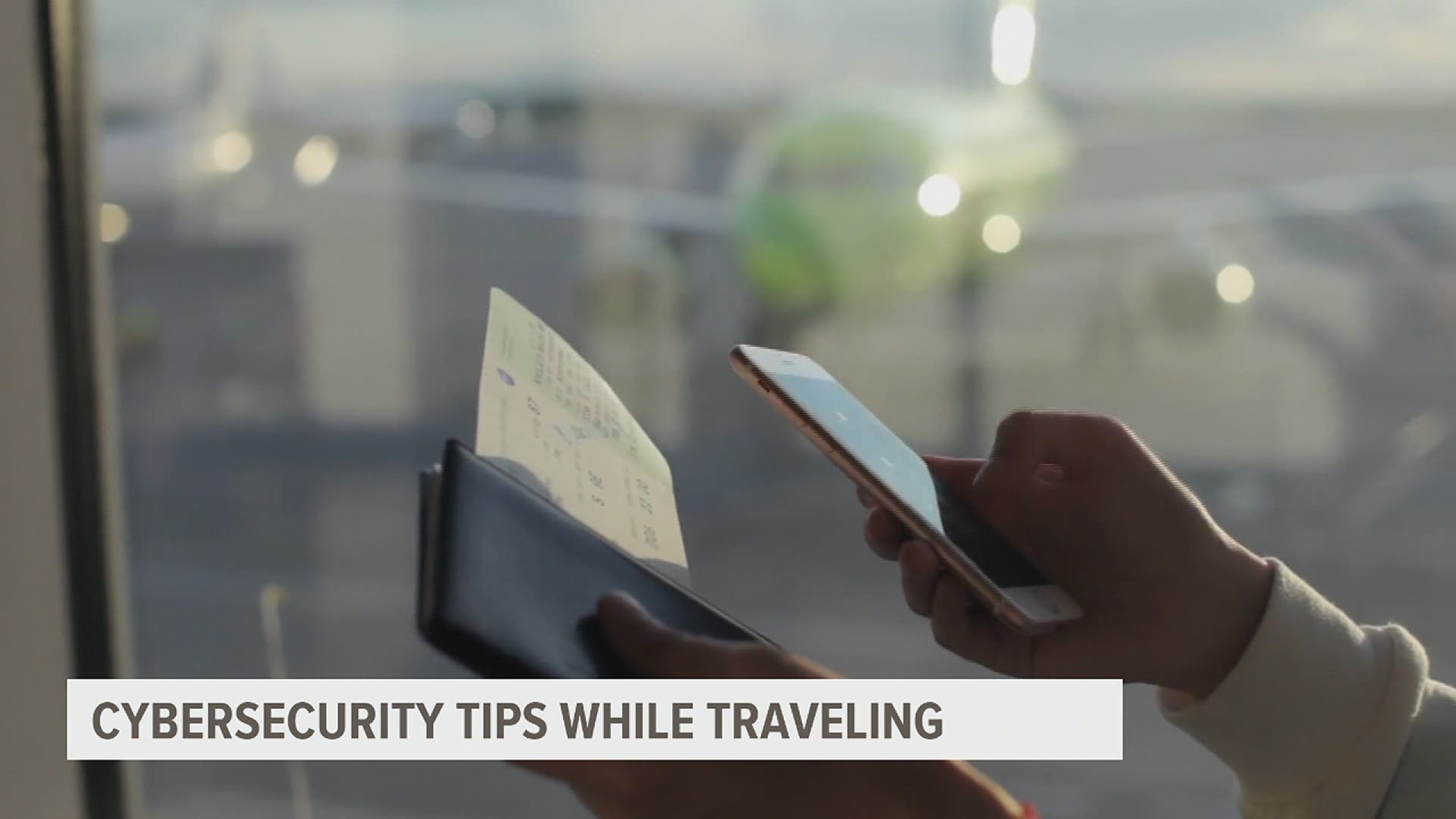You have everything booked for your summer vacation — airplane ticket, hotel and activities. But there is something else you should consider before being whisking away to your destination: your digital safety.
According to a report from McAfee, 68% of Americans plan to travel for leisure this summer.
Brandon Keath, cybersecurity officer at Appalachia Technologies and instructor at Harrisburg University of Science and Technology, said while traveling this summer to make sure your Windows, Mac, Chromebook, or cellular device is updated.
"Those updates will sometimes be annoying, they're important to make sure that we're keeping those computers up to date to stop hackers from getting in," said Keath. "People will say that Macs can't get viruses or Chromebooks can't get viruses, they're ways those devices can get viruses."
The McAfee report also said 44% of Americans admit to connecting to public WiFi, although 62% consider WiFi networks as the most vulnerable to cyber threats.
"They're people that could potentially try and hack into your devices when your connected to an open WiFi network," said Keath."When your using WiFi, hackers can listen in to all of the traffic between your computer and the internet or websites that you’re communicating with."
Keath said to avoid being vulnerable to hackers on a public WiFi network to confirm that the website has HTTPS and a lock icon in the web browser and subscribe to a virtual private network (VPN) to encrypt your browsing data.
"That means that if a hacker does see your traffic, they're not going to see anything, it's all going to be encrypted in a code that they can't comprehend," said Keath.
You should look up reviews before purchasing a VPN solution, Keath said.
Keith also said to scan your computer for viruses periodically with up to date software such as Microsoft Defender, be cautious when downloading files because they can contain malware and ensure the website is legit by checking the URL.
"Normally you have to initiate the action for someone to get access, you wanna be careful of that," said Keith.
McAfee also said 68% of Americans said they are more digitally connected because of the COVID-19 pandemic, but only about half have implemented additional levels of security.

